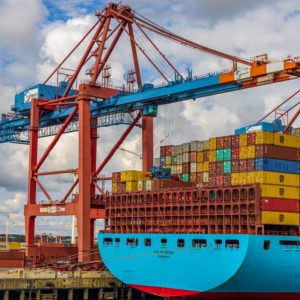The world needs more energy, and the free market is the best mechanism to deliver that energy.
How to Counter China’s BRI
"This multifaceted effort would provide a win for economic freedom and the environment worldwide. Rather than having the CCP serve as its loan shark, the developing world could see firsthand the benefits of American values such as democracy and free enterprise, creating allies and partners for years to come."
A Turning Point in the Climate Debate
Ronald Reagan and Margaret Thatcher’s Forgotten Environmental Strategy
A Turning Point in the Climate Debate
"For Republicans, banning imports of Russian oil and doing everything possible to ramp up supply at home are no-brainers. Expect candidates, including some Democrats, to hammer both themes until Biden relents. Yet, conservatives have an opportunity to offer something more ambitious and transformative than 'Drill, Baby, Drill' 2.0. We can reshape the climate debate and redefine what it means to be serious about environmental stewardship for decades to come."
After The Ukraine Invasion: Energy Realism Emerges In Germany While The US Doubles Down
"In Germany’s about-turn in energy policy, the government is now considering options to extend the operations of its coal power plants beyond 2030. The country had previously committed to a full exit from coal by that date. To reduce dependency on Russian gas imports, Halbeck is also not ruling out options to extend the life-span of its three remaining nuclear power plants."
American Fossil Fuels Have Key Role in Global Energy Mix
American fossil fuels provide an economically-viable way for countries to quickly and meaningfully reduce emissions.
Free Market Reforms Can Put More EVs on the Road
The EV market is on the verge of rapid growth, and free market reforms can help encourage EV adoption without subsidies or mandates. That growth should be driven organically by customer demand rather than unsustainable policies.
U.S. Protectionism Gives Boost to Russian Energy Imports
"Passed in 1920, the Jones Act restricts the domestic waterborne transport of goods to vessels that are U.S.-flagged, U.S.-built and mostly U.S.-crewed and owned. But such vessels are several times more expensive to build and operate than foreign ships, resulting in very high shipping rates. So high, in fact, that after factoring in the cost of Jones Act shipping it can often make more sense to buy products from distant countries rather than other parts of the United States—including petroleum."
As Energy Prices Spike Around the World, Policymakers Prepare to Fight Back
The roadmap away from Russia is diversification and choice.
Economic freedom, now more than ever
"Just because economic freedom is unfashionable today doesn’t make it ineffective. The human spirit, expressed in individual initiative, remains every bit as much the wellspring of community and global prosperity as it was when the Soviet empire fell. American conservatives, in particular, tempted by the clicks and frisson of ideological novelty, should remember: there is nothing more elitist than central economic planning, and nothing more populist than free markets roiling with hungry competitors and empowered consumers."









